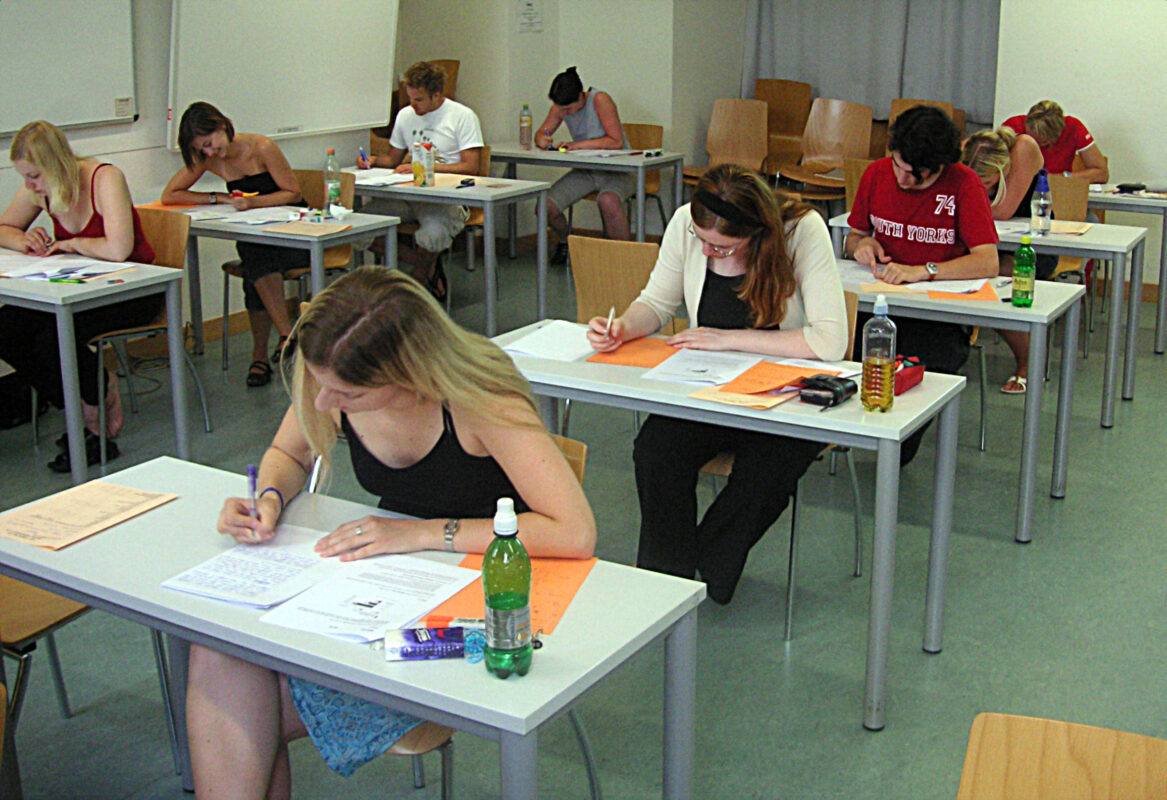Student Spotlight: Know How To Overcome Fear Exams?
Overcoming Challenges in Final Examinations: Strategies for Conquering Anxiety and Attaining Academic Success
As students prepare for their year-end final exams, they frequently encounter many obstacles that can impede their readiness and lead to heightened levels of stress and worry. Gaining a comprehensive understanding of these prevalent problems and offering efficacious solutions to surmount them is crucial to enabling students to optimise their academic performance.
This article aims to thoroughly examine the aforementioned issues and propose effective solutions that can empower students to overcome their anxieties.
1. Time management: Proficient time management is an essential competency that students must acquire in order to achieve exceptional performance in their examinations. According to findings from the National Survey of Student Engagement (NSSE), over 30% of college students indicated a deficiency in their time management abilities. This frequently results in eleventh-hour studying and below-average academic outcomes.
Proposed Solution: One potential solution is to promote the development of a study calendar or timetable among students, wherein they can effectively divide their study material into smaller, more manageable chunks. It is crucial to underscore the significance of commencing one’s academic preparations in advance in order to circumvent the burdensome consequences of last-minute cramming sessions. The implementation of time management strategies, such as the Pomodoro Technique, which involves engaging in concentrated work sessions lasting 25 minutes followed by brief intervals of rest, has the potential to augment one’s productivity.
2. Anxiety and Depression: A significant number of students experience the phenomenon of test anxiety. According to the Anxiety and Depression Association of America (ADAA), test anxiety is prevalent among students in the range of 16–20%. The presence of this dread has the potential to impede one’s performance, resulting in a decline in both focus and the ability to retrieve information from memory.
Proposed Solution: Implement educational interventions aimed at instructing students in stress-management strategies, including but not limited to deep breathing exercises, progressive muscular relaxation, and mindfulness meditation. It is recommended to motivate individuals to reframe pessimistic beliefs and substitute them with constructive affirmations. Creating a conducive environment that offers support and cultivating a mindset that emphasises personal development can mitigate the effects of exam anxiety and cultivate a sense of self-assurance.
3. Insufficient motivation: Sustaining motivation during the period of exam preparation can prove to be arduous, particularly when students encounter a substantial workload and conflicting obligations. The Journal of Educational Psychology presented a study that demonstrated a favourable correlation between intrinsic motivation and academic achievement.
Proposed Solution: Assist pupils in establishing attainable objectives and dividing them into manageable sub-goals. In order to bolster their motivation, it is advisable to commemorate and acknowledge the significant achievements of individuals. It is imperative to foster a sense of connection between students’ academic pursuits and real-life applications or personal interests, as this approach enhances the overall engagement and meaningfulness of the learning process.
4. Learning Struggle: The cultivation of efficient study habits is crucial for achieving success in examinations. Numerous students encounter difficulties in adopting effective study approaches or engaging in behaviours that impede their learning process.
Proposed Solution: Facilitate the exposure of students to a diverse array of study methodologies, including but not limited to active reading, paraphrasing content, and engaging in preparatory exercises involving practice examinations or quizzes. It is advisable to motivate individuals to engage in experimentation in many ways and ascertain the most effective approach that suits their needs. Highlighting the importance of regular intervals for rest and revitalization in order to optimise overall efficiency
5. Lack of Confidence: One factor that can negatively impact a student’s performance on exams is a deficiency of self-assurance and confidence. The significance of self-confidence in achieving academic achievement is emphasised by the American Psychological Association (APA).
Potential Solution: Facilitate opportunities for students to engage in simulated examinations or presentations as a means to both reinforce and demonstrate their acquired knowledge. Offer constructive remarks to accentuate their areas of growth while concurrently underscoring their areas of proficiency. It is advisable to consistently reinforce students’ prior accomplishments and foster a constructive self-perception.
Case Study:
Sarah, an adolescent enrolled in secondary education, experienced notable levels of worry and apprehension as she approached the culmination of her academic year in the form of final examinations. The individual encountered challenges in successfully managing her time, frequently allocating excessive amounts of attention to subjects that posed difficulties for her. Furthermore, she harboured uncertainties regarding her competencies and experienced a sense of being inundated by the large volume of study materials.
Under the instruction of her instructor, Sarah acquired the skill of developing a structured study timetable, wherein she designated dedicated time intervals for each academic subject. The Pomodoro Technique was employed by the individual in order to enhance concentration and optimise productivity during study sessions. Sarah, in addition, implemented active reading strategies and summarization approaches, enhancing her ability to comprehend concepts with greater efficiency. Through the recognition of little achievements and the reception of constructive criticism, Sarah was able to restore her self-assurance and develop a newfound appreciation for her personal talents.
The statistical data referenced in this article is derived from research and surveys undertaken by esteemed organisations. The National Survey of Student Engagement (NSSE) offers significant insights into the experiences and behaviours of students, encompassing aspects such as time management. The Anxiety and Depression Association of America (ADAA) is a reputable and reliable resource that provides valuable information pertaining to anxiety disorders, including test anxiety. The Journal of Educational Psychology is well recognised as a credible academic publication that disseminates scholarly research pertaining to diverse facets of education and the factors influencing student motivation. The American Psychological Association (APA) provides authoritative perspectives on academic attainment and the significance of self-assurance. To sum things up, by recognising and resolving these prevalent obstacles, students can effectively navigate the period of final examinations, thereby mitigating anxiety and enhancing their academic achievement. Key measures for assisting students in overcoming their concerns and attaining success encompass the promotion of effective time management, the provision of stress-management skills, the cultivation of motivation, the encouragement of efficient study habits, and the instillation of self-confidence. It is important to acknowledge that examinations can serve as a catalyst for personal development and academic accomplishments when accompanied by appropriate resources and assistance.





